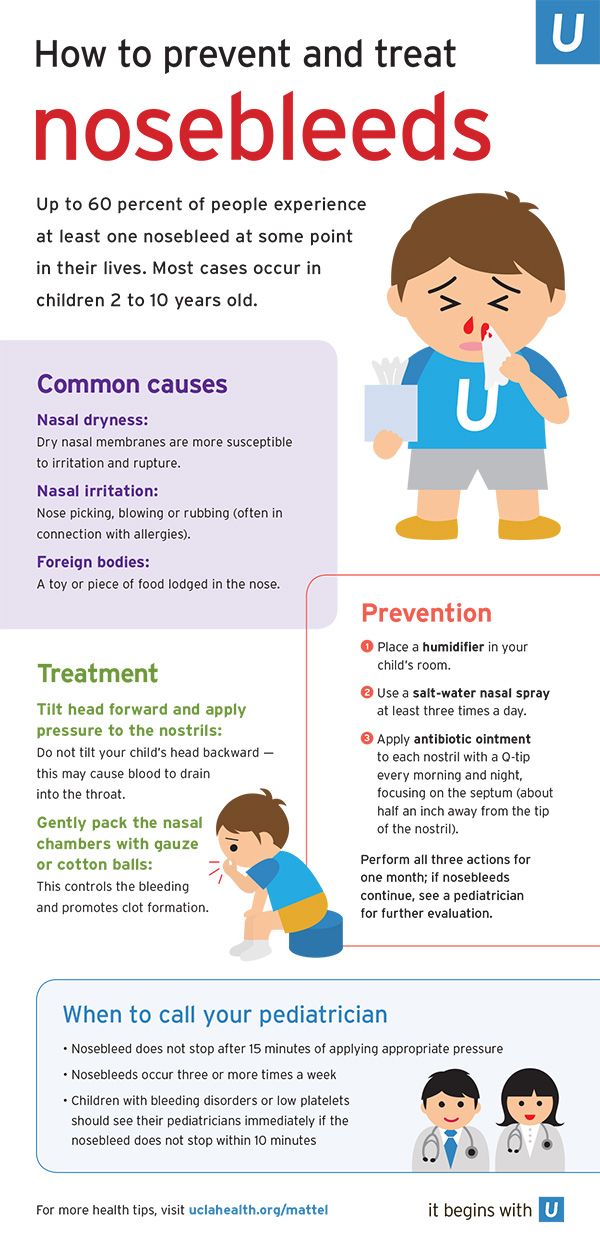Deviated Septum Breathing: Signs, Causes & Treatments
Do you ever feel like you just can’t get a full breath through your nose? Like one side is always a bit stuffy, or...
Posted on August 17, 2017
NoseNose bleeds are a common ailment that plagues individuals of all ages. In fact, 60% of people will experience a nose bleed in their lifetime, according to Medscape.com.
As one of the most common issues in the ENT field, nose bleeds are related to the circulatory system, referring to blood. Nose bleeds can originate from the anterior or posterior part of the nose.
An anterior nose bleed typically causes blood flow from one nostril, near the septum – the area of the nose that separates the left and right nostrils. Anterior nose bleeds are the most common form and generally don’t require emergency attention.
For prevention and treatment methods for children, see this infographic from UCLA Mattel Children’s Hospital:

This graphic tells us a lot about what we can do for nose bleeds, especially in the area of pediatric ENT. Pinnacle ENT Associates’s ENTs can address your child’s issues in the event you feel more comfortable with an ENT expert in lieu of the regular pediatrician.
The prevention methods outlined above can be useful for adults as well, especially the use of a dehumidifier to prevent dryness inside the nose.
Although nose bleeds generally aren’t dangerous, there are instances when a nose bleed can escalate to an emergency situation.
For example, a posterior nose bleed results in blood flow from deep in the nose, resulting in blood entering the throat and mouth. These nose bleeds are common amongst those with high blood pressure, older individuals and those who have suffered a facial injury. Posterior nose bleeds are serious and should be treated by a physician.
In addition to posterior nose bleeds, here are other instances in which a nose bleed may require a hospital visit:
Despite the large percentage of people who will experience a nose bleed in their lifetime, a mere 6% of those individuals will seek medical attention for it.
If you feel that your nasal bleeding is abnormal, please seek help immediately at an emergency room or urgent care medical facility.
Request an appointment at one of Pinnacle ENT Associates’s 15 office locations today.
Do you ever feel like you just can’t get a full breath through your nose? Like one side is always a bit stuffy, or...
Sleep is essential to your health and well-being, yet many people struggle to get their full eight hours. One often overlooked obstacle to a...
Whether you enjoy contact sports, stumble over your shoelaces during a run at Fonthill Park or are just a little clumsy, you have likely...
Nasal polyps are benign growths in the sinus and nasal passages area. They’re known for causing symptoms such as loss of smell, congestion and...